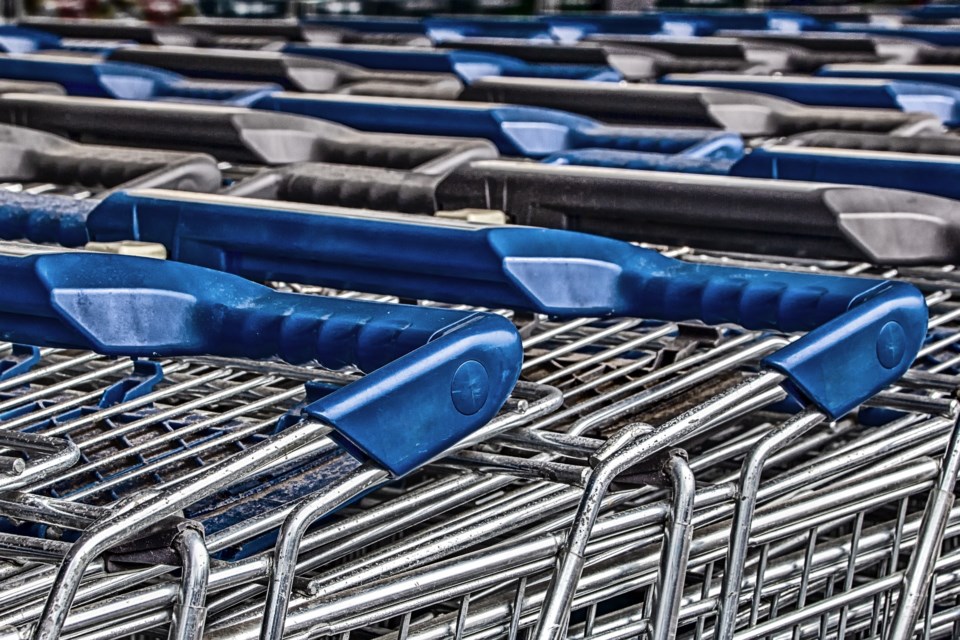THUNDER BAY – Stores in Thunder Bay could be made responsible for abandoned shopping carts, which a report from municipal staff calls a “growing problem.”
City council on Monday will debate proposed rules that would require stores to submit plans to prevent theft and recover stray carts – and pay a fee for their return, if picked up by city staff.
Local business owner Kasper Wabinski implored the city to crack down on the issue last year, saying carts left on his property were an unfair burden that grocery stores should be responsible for.
Coun. Peng You is happy with the rules recommended in response by city administration.
“I think it’s a good start,” he said. “It shows the city has determination to deal with this longstanding and growing issue.”
Abandoned carts can block sidewalks, clog transit stops, and attract garbage, according to a report from the city’s licensing and enforcement department.
Especially in the winter, abandoned carts can pose accessibility issues on sidewalks, said You.
The problem “reflects the city’s moral standard, and also the city’s image," he added, and could negatively impact tourism.
Canadian municipalities have taken various approaches to the issue, with some levying fines on business owners and/or individuals who remove carts.
However, bylaws that attempt to ban shopping carts in public places, or fine those who take them off store property, have drawn criticism.
In 2018, Vernon, B.C.’s city council voted down a proposed bylaw to ban shopping carts in public spaces after it was challenged by the B.C. Civil Liberties Association, which argued it unfairly targeted the homeless.
City of Thunder Bay staff recommended against fining individuals.
“Shopping carts are largely, but not exclusively, utilized by persons who lack easy access to a vehicle,” it reads. “The users, largely because of economic issues, likely [have] few alternatives and imposing fines would not automatically change behaviours and may create additional community/social issues.”
Instead, staff raise the possibility that stores or community groups could subsidize personal handcarts for those in need.
You said while he believes firmly in individual responsibility, it made sense for the rules to target stores.
“Companies definitely have to take on responsibility, because they’re the owner,” he said. “I don’t want to punish any business for this issue, but you have to take on responsibility.”
Some local stores already have solutions in place that could satisfy the new requirements.
Safeway, for example, uses a system called Gatekeeper that locks a cart’s wheels when it leaves the property; Carts at the Real Canadian Superstore require a coin deposit.
And many stores already take steps to recover carts at “regular” locations, the city report notes.
The report suggests those retailers who “do not actively... recover carts and [instead] budget for annual replacements," at an average cost of around $300, are the source of many abandoned carts.
Skaf’s Just Basics owner Robert Skaf said for his store, located in Current River, cart theft isn’t a major issue. Still, he said he found it unreasonable to expect stores could effectively police the problem.
If city council endorses staff recommendations Monday, a new bylaw would be created that would require businesses to submit a "shopping cart control and recover plan" to the city for approval by May 31, 2022. The city would offer more specific criteria for the plans by the end of November.
The bylaw, which would be reviewed after three years, would establish a new offence for failing to file an acceptable plan, or not adhering to it.
It would also introduce a fee for any “city-involved cart recoveries” and a system for holding, returning, or disposing of carts.
Stores would also be required to label all of their carts with the business name, and contact information.
